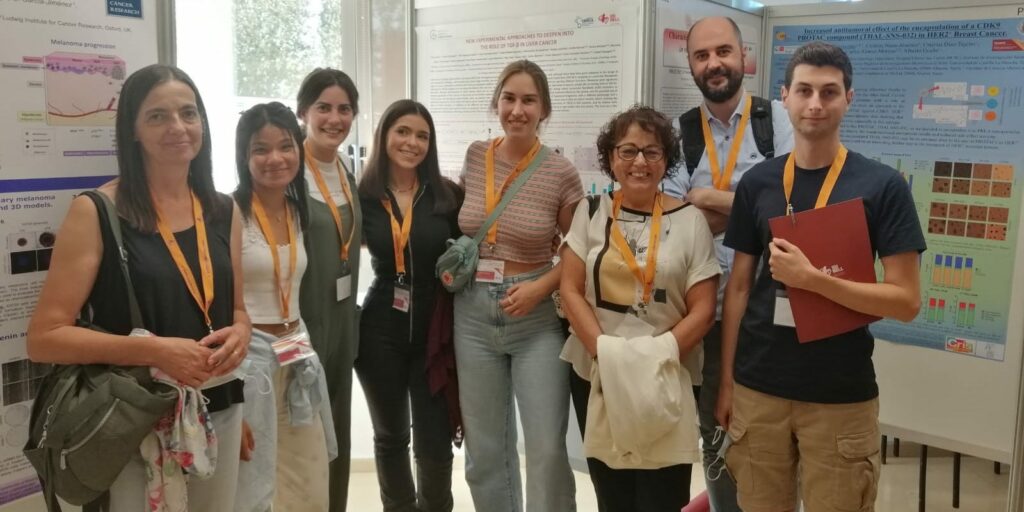Research led by the IDIBELL TGF-Beta and Cancer group has dissected the role of the NOX4 protein in the response to TGF-beta, one of the factors that controls the progression of hepatocellular carcinoma, the most common type of liver cancer.
The team led by Dr. Isabel Fabregat, a researcher at IDIBELL and CIBEREHD, has shown that NOX4 is necessary to slow down the growth of cancer cells in response to TGF-beta, as part of the tumor suppressor actions of this factor. However, contrary to what was initially expected, the prognosis of patients who express high levels of NOX4 and TGF-beta is less favorable, suggesting that this protein can also promote pro-tumorogenic actions in certain contexts. Given this fact, the authors delved into the role of NOX4 in response to TGF-beta, demonstrating that NOX4 also mediates its ability to induce migration and invasion through the regulation of the cellular cytoskeleton.
“Our findings provide deeper insight into how NOX4 and TGF-beta interact in liver cancer. This could open the door to new treatment options and personalized approaches for patients,” says Dr. Fabregat. She continues: “NOX4 helps control tumor growth, but it is also necessary for cancer cells to move and spread extend”.
The work has been carried out in the context of a collaboration within the CIBEREHD, with the group of Dr. M. Luz Martínez-Chantar (CIC Biogune, Bizkaia), and an international collaboration with the group of Dr. Gianluigi Giannelli (IRCCS Saverio De Bellis Research Hospital, Bari), and has had the support of the Spanish Association Against Cancer (AECC) and the State Research Agency (MICINN).
Hepatocellular carcinoma is one of the deadliest malignancies worldwide due to its high recurrence rate, high metastatic potential, and drug resistance. For this reason, the results of this research are very valuable for a better understanding and eventually a more effective fight against this disease.
The Bellvitge Biomedical Research Institute (IDIBELL) is a biomedical research center created in 2004. It is participated by the Bellvitge University Hospital and the Viladecans Hospital of the Catalan Institute of Health, the Catalan Institute of Oncology, the University of Barcelona and the City Council of L’Hospitalet de Llobregat.
IDIBELL is a member of the Campus of International Excellence of the University of Barcelona HUBc and is part of the CERCA institution of the Generalitat de Catalunya. In 2009 it became one of the first five Spanish research centers accredited as a health research institute by the Carlos III Health Institute. In addition, it is part of the “HR Excellence in Research” program of the European Union and is a member of EATRIS and REGIC. Since 2018, IDIBELL has been an Accredited Center of the AECC Scientific Foundation (FCAECC).

